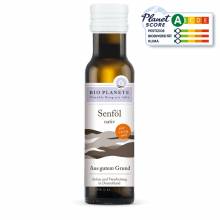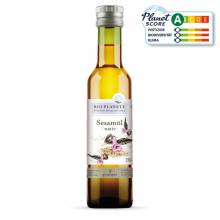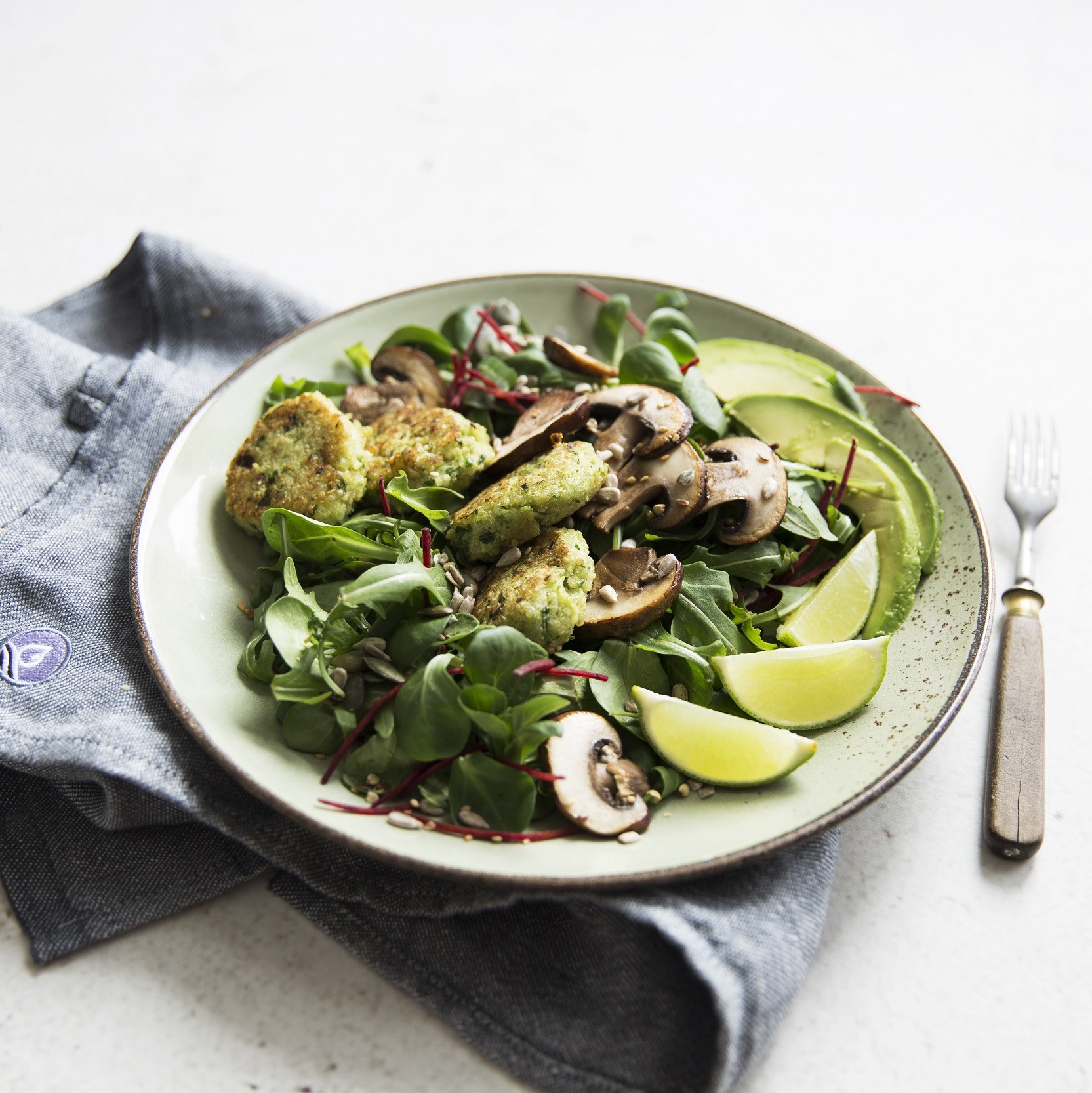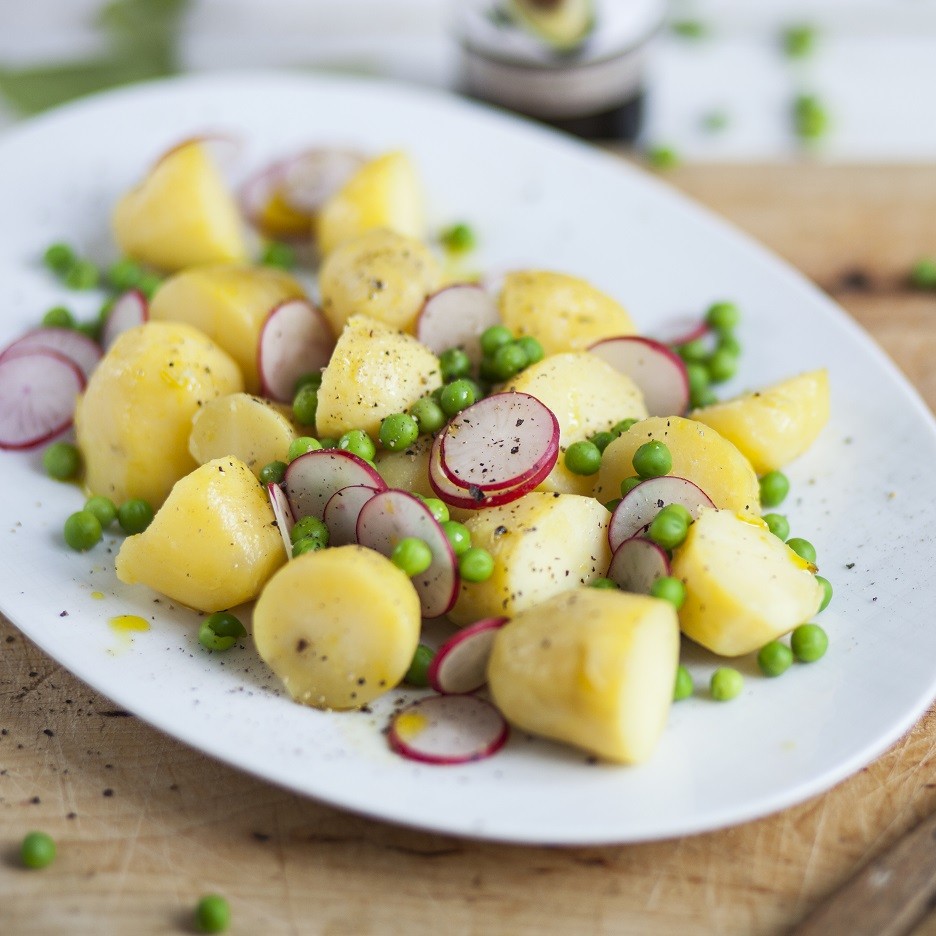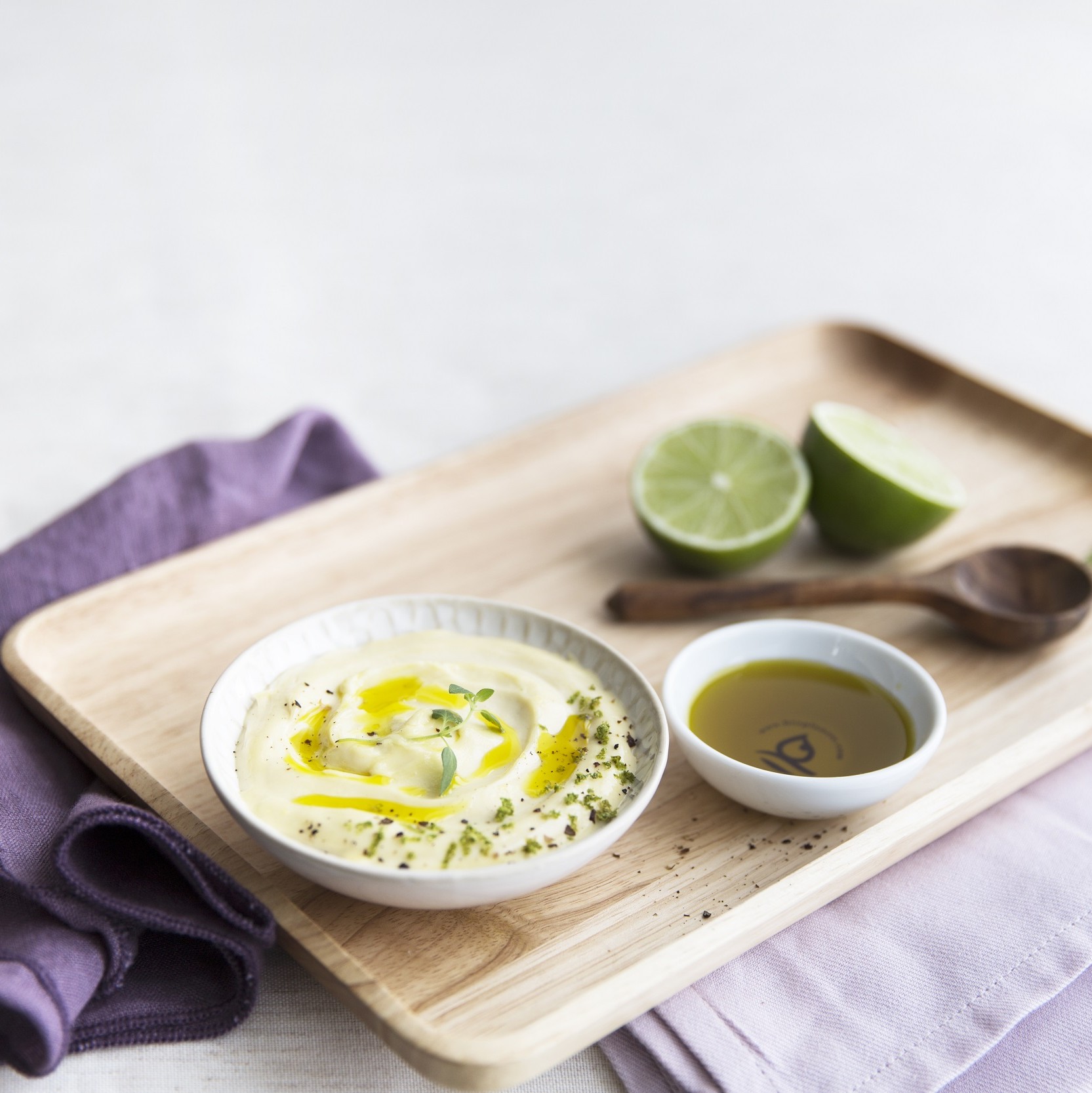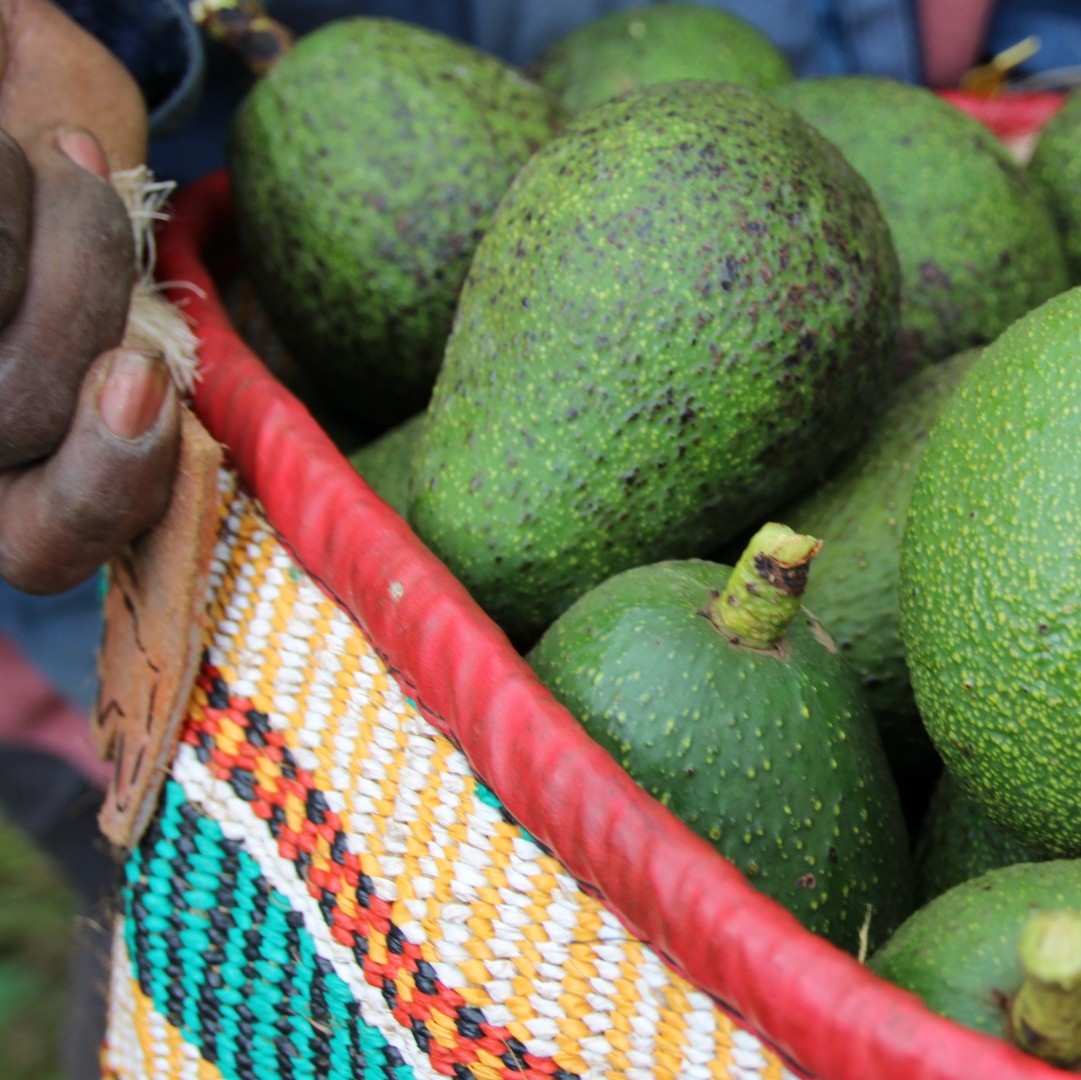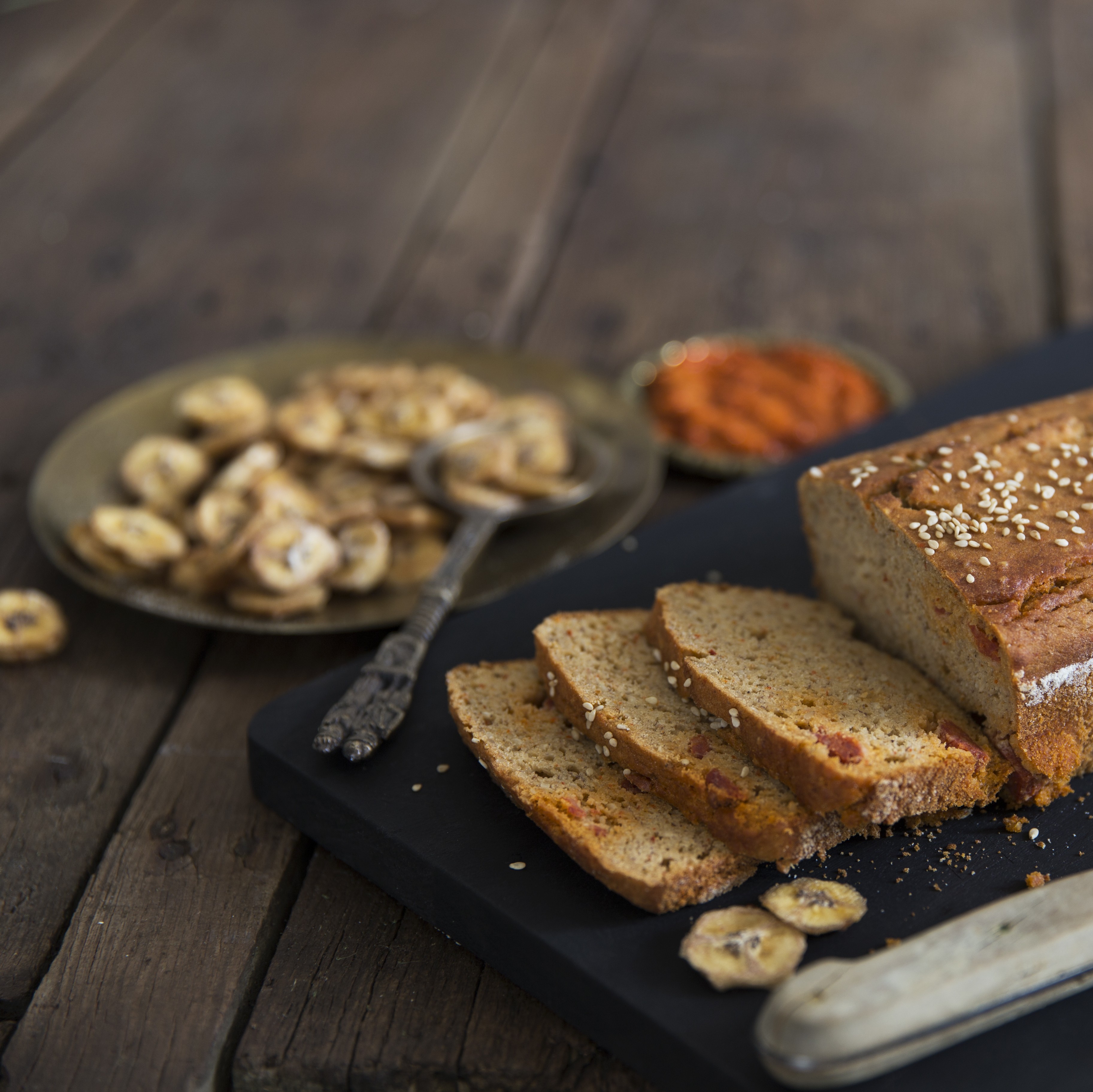

Avocado Oil
· Virgin ·
250 ml
Even the Majas and Aztecs called the pear-shaped avocado the “butter of the forest” because of its buttery, soft taste. The BIO PLANÈTE Virgin Avocado Oil was grown in compliance with high ecological standards and is fairly traded. Through gentle cold pressing, the valuable nutrients, such as vitamin E, are completely preserved.
The “Fair for Life” certification takes into account ecological, economic and social standards. It provides small farmers in Kenya with access to education as well as modern work equipment, fair prices and extensive local value creation. As part of the partnership, an oil mill was built on site - certified according to the “Fair for Life” standard. More information at www.fairforlife.org
This oil is one of the first food products in Germany and France which has been rated with the Planet Score. For this eco-labelling, additional indicators are used alongside the life cycle assessment to better capture the environmental impact of food production. Read more about the Planet Score.
Recipe ideas and use of Virgin Avocado Oil
Avocado Oil is traditionally used in cosmetics (skin and hair care) and as food. Avocado Oil is suitable for steaming as well as cooking and may be heated carefully. With its soft, buttery taste, it enhances salads, vinaigrettes and dips.
You can also try our Shea Butter and Virgin Almond Oil.
Product of organic farming
Average nutritional analysis for 100 ml
** % of daily reference intake (adults)
-
What does cold pressing mean?
"Cold pressing" assumes that no external heat is added. When we cold-press oils, the temperature is monitored and we ensure that no high temperatures are reached. We can therefore guarantee that the quality of the oil is not impaired.
-
What does "virgin" mean in the context of oils?
A virgin oil is a cooking oil which is obtained exclusively using mechanical processes without preheating the raw materials. It is not subjected to chemical or thermal treatment or to any other refinement process and thus preserves its authentic, natural taste and the essential components of the raw material. This also makes it suitable for eating raw.
-
What conditions and standards are behind the organic seal on our oils?
An organic seal is a quality and test seal with which products from organic farming are marked. In 2010, a binding new organic seal was introduced throughout the EU, also known as the EU organic logo, which identifies food from organic farming (a star-shaped leaf on a green background).
This seal replaced the German state organic seal (green hexagon with "BIO" lettering), which had existed since 2001, with the same standards in terms of content. Due to the high degree of popularity of its predecessor, both seals are still often used today.
The use of this certification is strictly regulated by the publisher and is subject to ecological requirements. Compliance with the criteria by producers is ensured by a documentation obligation as well as regular sampling and examination of product samples. Compliance with the regulations is monitored in Europe by the responsible Eco-Control bodies.
Foods labelled with the organic seal must, among other things:
• Not be produced by or with/from genetically modified organisms
• Not to be produced with the use of synthetic pesticides
• Contain no more than 5% conventionally produced components (in exceptional cases, if ingredients are not available in ecological quality, in accordance with Annex VO)
• not contain sweeteners and stabilisers as well as synthetic colourants, preservatives and flavour enhancers
• not result from monotonous crop rotations (two-, three- and four-field farming)
• and much more: more information on the EU Organic Label -
Can I use the oil even after the expiration date?
We can no longer guarantee the oil's perfect quality after its best before date.
In the interest of sustainability, however, we would like to point out the following: vegetable oils do not belong to the group of very sensitive foodstuffs and can usually still be consumed after the best-before date. This is especially true if the bottle is still sealed and it has been stored away from heat sources. Therefore, we recommend using your senses to test the oil before disposing of it. Oil that has been stored for too long can be easily recognized by smell and taste. If it tastes rancid or unusual (off), it should not be consumed. -
How do I remove the labels from the jars and bottles?
Since we use oil-soluble glue for the labels, the best way to remove the label from the coconut jars is with oil. Simply coat the label with oil, let it absorb overnight and peel off easily in the morning. However, if the label is already off and only the glue is on it, this method doesn't work as well. In this context, we have been told of positive experiences with orange oil cleaner, such as from AlmaWin or Sodasan. Another option is a hair dryer - because heat also loosens the label well.
Get more suggestions at Upcycling & Creative. -
What is behind the "Fair for Life" seal?
The "Fair for Life" seal certifies products from fair trade, environmentally friendly production and social responsibility. The programme has extended the definition of traditional fair trade: Fair trade principles can also be applied to regionally produced goods and domestic trade and socially responsible working conditions can be demanded along the entire trade chain. The seal places high demands on trading conditions and transparency of value creation.
The Fair for Life programme was developed by the Swiss Organic Foundation in cooperation with the Institute for Market Ecology (IMO) as an alternative fair trade certification programme to provide all producers and all products with the possibility of fair trade certification.
The aim of the Fair for Life programme is to improve the lives and living conditions of disadvantaged producers and workers on all continents, in all cultures and areas of production.
Further information can be found here: Fair for Life certification program
